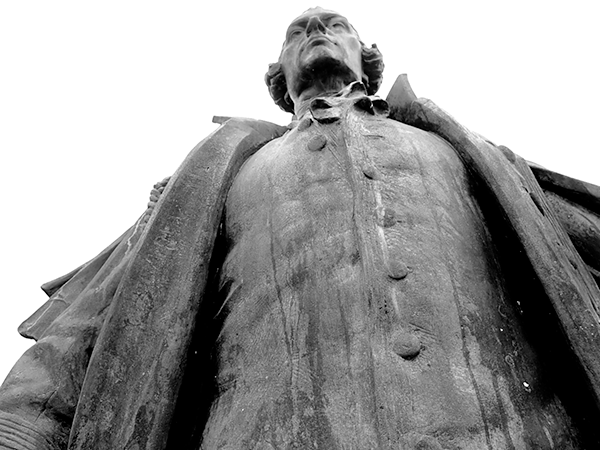
The Mohawk word atateken, meaning "relatives" or, loosely, "brothers and sisters," suggests equality and fraternity among peoples. Last month it officially replaced British general Jeffrey Amherst's name on a downtown street sign in Montreal. A sharp commemorative contrast compared to Amherst's support for infecting his Indigenous enemies with diseased blankets.
Meanwhile last month in Nova Scotia saw public meetings asking for feedback on how to best recognize and commemorate Indigenous history including how to commemorate Halifax's founder, British colonel Edward Cornwallis, who in 1749 issued a scalping proclamation against the Mi'kmaq. These sessions yielded divergent perspectives, but officials need not deliberate for long. Separate and apart from whether the violence Cornwallis ordered against the Mi'kmaq was appropriate or even effective in its time, it clearly disqualifies him from public commemoration today.
Those who disagree will predictably cite historical significance to justify public commemoration: Cornwallis was important and therefore he deserves a statue. This argument fails because the fundamental purpose of statues and place names is not to aid historical understanding but to signify a community's values.
History has been recruited to this purpose since the first image of Pharaoh smashing his enemies was chiseled in stone, and we are now habituated to these dark arts and their symbolic humiliations. Even the bronze panels at the base of Nelson's Column in Trafalgar Square in London were cast from captured French guns.
This monument was modelled on Roman examples that were usually topped with oversized, bronze emperors. The equestrian statue of Marcus Aurelius at the Capitoline Museums in Rome is an unlikely survivor. He raises one arm to his troops in a gesture some historians believe inspired the 20th century's menacing fascist salute.
More tellingly, Saddam Hussein's Hands of Victory monument in Baghdad featured giant, scimitar-wielding hands bearing the dictator's own immodest fingerprints. Beneath them, the monument's builders spread thousands of helmets claimed as trophies from the Iranian war dead.
Halifax's bronze Cornwallis presents a subtler form of triumphalism, but it is triumphalism nevertheless. If you don't think so, take it from the project's instigators: Archibald MacMechan, who served on the committee responsible for erecting the statue, compared the founding of Halifax to that of ancient Rome in a 1927 article, praising Cornwallis's "sterling manhood" as an example to "men of English blood the world over [who] are accustomed to give voice to a just pride in the achievements of their race, as a colonizing power..."
We have different values today when it comes to public memory and official commemoration. More to the point, triumphalism is toxic in societies like ours where the descendants of past antagonists wish to live peacefully together. And yet, many of our citizens fail to recognize the image of Pharaoh in the sword-clad, bronze Cornwallis with his puffed-out chest (the real Cornwallis, tormented by illness, was probably not so statuesque). "You can't change history," they say, although images like these have always been the public relations tools of history's great oppressors and falsifiers.
Let us give Cornwallis the scrutiny he deserves by placing the Cornwallis statue in a civic museum. He should not be erased from history, but he and others who claim to lead should receive the full glare of history's penetrating light. Reserve the public square for our real values. Atateken by any name is welcome here, but this is no place for the divisive hero-fantasies of a dead empire.
Jonathan Fowler teaches in the anthropology department at Saint Mary's University.
———
Voice of the City is a platform for any and all Halifax individuals to share their diverse opinions and writings. The Coast does not necessarily endorse the views of those published. Our editors reserve the right to alter submissions for clarity, length, content and style. Want to appear in this section? Submissions can be sent to [email protected].
